What a smelly subject we have in our hands…
At the risk of sharing too much information, I take courage that I am not alone when I say constipation is, quite literally, a pain in the butt.
Ever had a hard time to go? Felt like there is something blocking your rectum that prevents you from going smoothly? Ever feel pain and bloating in your abdomen? Do you feel sluggish or lethargic and have no appetite? These are the most common symptoms of constipation. This is a common problem among many people, including me! Have no shame, though, as I am confident that everyone has gone through this unpleasant experience - pun may or may not have been intended.
The most common causes of constipation include a low-fiber diet, a sedentary lifestyle or lack of physical activity, taking certain medications, pregnancy, changes in routine, abuse of laxatives, holding “it” in, not drinking enough water, and aging. Changes in routine, like traveling, also cause constipation. Meals are eaten at different times, bedtime or toilet patterns also change, both of which can lead to constipation. Abusing laxatives can also cause constipation. It is habit-forming; when you stop using them, constipation can occur.
Do you also tend to hold it in when you feel the urge to go? I would strongly advise you to avoid doing this, unless really needed. The longer you delay going, the drier the stool becomes. Hence, it will be harder to pass it. Why aging? As we get older, our metabolism slows down. This leads to less intestinal activity in the muscles in the digestive tract because they do not work as well as they used to.
A well-known method to ease constipation is colon cleanse. Today, we are going to take a closer look at it: What is a colon cleanse? How is it done? What does it do to the body? If these are the questions you want to be answered, then read on.
What Is a Colon Cleanse?

The colon is home to billions of bacteria. That makes up 70% of the dry weight of feces. Colon forms the stool, but there are actually various beneficial bacterial organisms in the colon and digestive tract that are essential to proper nutrient absorption, maintaining pH balance, controlling hunger, and fighting potentially dangerous bacteria. That’s why a healthy colon is very important for our overall wellness.
Colon cleansing also called a colonic or colonic irrigation, is usually done to prepare for medical procedures like colonoscopy. Some medical practitioners do it for detoxification, though.
How Is Colon Cleanse Done?
When doing a colon cleanse, large amounts of water, sometimes up to 16 gallons or about 60 liters, and other possible substances like herbs or coffee, or flushed through the colon. It is done by inserting a tube into the rectum. In some cases, smaller amounts of water are used and are left to sit in the colon for a short time before being flushed.
What Does Colon Cleanse Do to the Body?
Some advocates of colon cleansing believe that the toxins in the gastrointestinal tract can cause different health problems like arthritis and high blood pressure. They believe that through colon cleansing, health is improved by removing toxins, thus boosting energy and strengthening the immune system. However, there has been no concrete evidence that colon cleansing does these things.
In fact, there are some potential concerns with colon cleansing, such as dehydration, a tear or perforation in the rectum, infection, and a change in your electrolyte balance - this can be especially dangerous if the patient has kidney or heart disease.
It is also important to know that colon cleansing is not an effective method for weight loss. While you may lose a few pounds at first, know that this is largely due to the fact that water weight and stool have been removed from your system. This is not equal to the permanent loss of fat. Therefore, colon cleansing is not a long-term solution to your weight problems.
What Can You Do Instead of Colon Cleansing?
The good thing is, your colon cleanses itself naturally; that’s what going number 2 is for. If you want to improve your bowel movement, there are a number of ways to make number 2 easier.
Drink Plenty of Water!
This is probably the most cliche answer to any problem, but it is true. Drinking six to eight glasses of lukewarm water every day can regulate your digestion. You can also eat foods that are high in water content.
Building on hydration, some people also do a saltwater flush. Before eating in the morning, they mix 2 teaspoons of salt with lukewarm water and drink it on an empty stomach. Within a few minutes, you are likely to feel the need to go. You can do this in the morning and evening.
Go on a High-Fiber Diet
Fiber is an essential macronutrient found in whole, healthy plant foods like fruit, vegetables, grains, nuts, seeds, and more. These plants contain cellulose and fibers that help bulk up the excess matter in the colon. They also manage constipation and overactive bowels, while boosting helpful bacteria as a prebiotic.
Pack On the Probiotics
Probiotics introduce good bacteria to the gut with the assistance of fiber and resistant starches. These prevent inflammation and regularity - both factors are related to the digestive health connected to the colon. Probiotic-rich foods include yogurt, pickles, kimchi, and even apple cider vinegar.
I strongly suggest that you do a gentle and natural colon cleansing instead of the medical one. However, if you really wish to do it, make sure that you are under the supervision of a professional. Whether you are doing a natural or medical colon cleanse, make sure that you seek the advice of your physician. Remember, colon cleansing is not for everybody.

